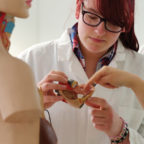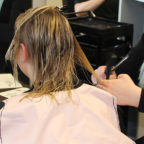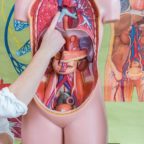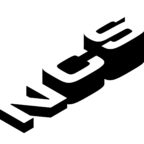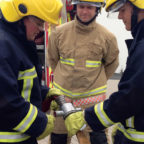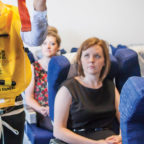 Access to HE – Health Professions
Access to HE – Health Professions
In Short
If you are over 19 and wish to move onto higher education but either lack the formal entry qualifications or feel the need to develop confidence and regain practice in study methods, then our Access to Higher Education course is for you.
Our Diplomas are nationally validated through AIM Qualifications and Assessment Group and are entered in the National Register of Access to Higher Education courses, to which higher education establishments refer.
This course will help you to gain a university place to study in a range of vocational or academic degrees. Weymouth College offers a number of flexible Access to Higher Education diplomas, using a blend of classroom and online learning – in Health Professions, Science, and Humanities and Social Science*. An encouraging and friendly environment, created by staff and fellow mature students, means that we have a very good track record in helping adults get to university.
We offer you support and advice throughout the process of applying to university including preparation for interview.
Entry Requirements
This course is intended for those returning to learning. However, due to changes made by the awarding body and in order to maximise your potential for entry into a variety of HE institutions, we now require applicants to already possess (or be studying towards) at least one from GCSE English or Maths grade A – C (new specification 9-4). We will discuss options for taking a GCSE alongside your studies for those of you who only have one subject. Please note we cannot accept Level 2 Functional Skills in English and Maths as entry qualifications for this course.
If you do not possess the GCSE qualification(s) or are not working towards obtaining them you may have to consider taking the one-year GCSE English or Maths (evening) course. However, you will need to have previously achieved Level 2 Functional Skills or gained at least a grade D or 3 (new standard). If you do not have grade D/3 you will need to contact our 106 St Mary Street team on (01305) 759683 who can assist you with Functional Skills qualifications.
Applicants will be contacted (usually via email) prior to interview to ascertain appropriate Diploma routes and entry requirements. You must also show sufficient life experience and commitment to independent study. The Access to Higher Education course is full time, two days a week (Thursday and Friday) programme. Please ensure that you are able to devote this time in addition to completing assignments at home. All diplomas are taught over 34 weeks together with a minimum of 8 hours directed private study per week.
Course Content
The philosophy underlying the course is that you should be actively involved in the learning process. Your experience will be seen as a valuable resource. Independent study techniques will be encouraged throughout the course and you must be prepared to devote an agreed amount of time per week to study at home.
There are three different diplomas available at Weymouth College. Availability of subject options is dependent on the number of applications received; your options will be discussed at interview. You must complete the core component plus at least three subject options as follows:
Healthcare Professions – Human Biology, Psychology, Health Studies, Numeracy in a Health and Care Context.
Progression suggestions for this diploma include midwifery, nursing, health science, pharmacy, paramedic science, radiography, physiotherapy, occupational health and other health related careers.
Humanities & Social Science – History, English, Psychology, Sociology.
Progression suggestions for this diploma include anthropology, criminology, education studies, English, geography and environmental science, history, media, philosophy, psychology, politics, sociology, social policy.
Science – Human Biology, Chemistry, Physics and Maths, Practical Science Project.
Progression suggestions for this diploma include nursing, midwifery, medical and dental technicians, pharmacy or paramedic science.
How will I be assessed?
You will be assessed through coursework and development of portfolios of evidence. There may be examinations and formal timed assessments at the end of the course, which count towards parts of your achievement, these are designed to prepare you for this type of assessment at university.
Coursework consists of written and practical assignments and presentations. On completion of the course you will receive an AIM Qualifications and Assesment Group Access to Higher Education Diploma in accordance with the requirements of the national validating body QAA, who provide the National Kite-Mark.
All Access to HE Diplomas are made up of a total of 45 graded credits.
Progression
Vocational degrees such as Nursing, Midwifery, Social Work or Paramedic Science, BSc in a related academic subject (with an option progressing to an additional qualification such as a Master’s Degree). In addition, Weymouth College offers a range of Foundation (FdSc or FdA) degrees which may also accept the Access to HE course as a suitable form of matriculation (admission). The College also offers a BSc (Hons) Professional Studies (Health & Community) Top Up course.
The course is excellent preparation if you wish to follow a wide range of studies at university.
The successful completion of an Access to Higher Education programme is regarded as an acceptable form of matriculation (admission) by universities and colleges however, it is important to note that each university sets its own entry requirements so you will need to research these carefully.
You will be able to apply to universities and colleges of higher education throughout the country or you could choose to continue to study at a higher education level at Weymouth College. Your application to higher education courses will be considered more seriously and more sympathetically as a result of your attendance on this course but places are not guaranteed.
The Careers Advisors at Weymouth College can assist in helping you research university options and potential career choices. We will give you support and advice in gaining a place in higher education through the UCAS and other entry schemes. This course offers a wide range of progression routes.
More recently for example, students have gone on to study healthcare courses (midwifery, nursing, paramedic science etc.), business management, equine science, public services, science and forensic science as well as other academic degrees. *Students are advised to check university requirements before selecting diplomas and subjects.
Did you know?
From September 2020, new annual payments of £5,000 – £8,000 are available to help undergraduate and postgraduate student nurses fund their studies. Best of all, they won’t need to be repaid.
WilI I be eligible?
Every student nurse studying or starting their course in September 2020 (so this includes students in years 2 and 3) will receive at least £5,000.
Every student nurse studying or starting their course from September 2020 will receive at least £5,000.
Further support worth up to £3,000 will be available for those studying specialist disciplines, like mental health. Students in areas of the country that have had low take-up rates for nursing courses will also be eligible for this extra support. Along with this, further childcare allowance will also be available.
This means that some students may be eligible for up to £8,000 of financial support for each year of study.
How do I find out more?
Fees
The fees for 2023/24 have yet to be confirmed however the fees for 2022/23 were as follows: Humanities Diploma £3022 and for all other Diplomas £3384.
Tuition Fees
If you are aged 19+ at the start date of the course you may qualify for an Advanced Learning Loan (ALL). See https://www.gov.uk/advanced-learner-loan for further details. You cannot apply for the ALL until around mid-May annually for the year of entry for your course. You will be contacted by the College (around mid-May) to offer assistance and further details to enable you to complete your application for the Advanced Learning Loan.
Student Finance England will ‘write off’ any outstanding Advanced Learning Loan balances you owe for an Access to HE course once you complete a higher education course. This means you don’t have to repay it.
Note: If you are aged between 19-23 years at the start of the course and the Access to HE course is your first full Level 3 qualification you may still be entitled to government funding so will not have to pay tuition fees. Please contact Lin Gisborne on 01305 764723 or email lin_gisborne@weymouth.ac.uk for further details.
Will studying the Access to HE Diploma affect my benefits?
Although the Access diploma is classified as a full-time course because of the level of independent research required, it is only 2 days per week with minimal contact hours. You may be able to continue to claim universal credit. We can provide you with a letter detailing the course start and end dates and the annual contact hours in order to support your claim.
